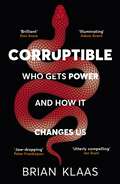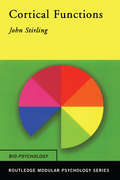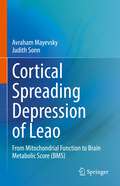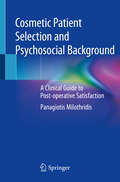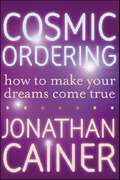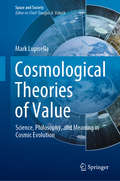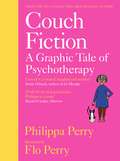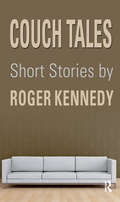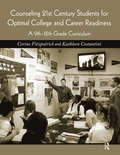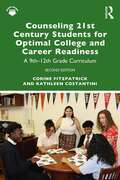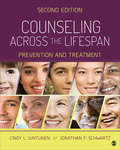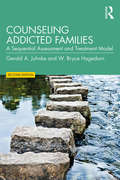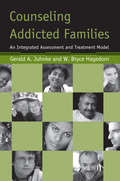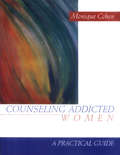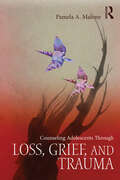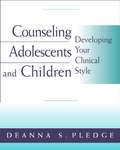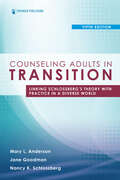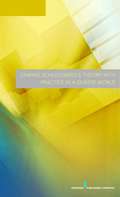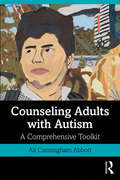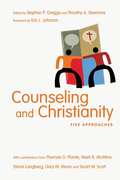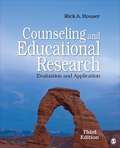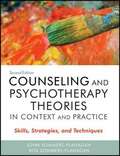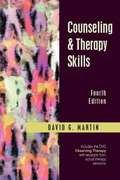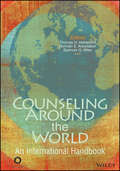- Table View
- List View
Corruptible: Who Gets Power and How it Changes Us
by Dr Brian Klaas'Illuminating . . . reveals why some people and systems are more likely to be corrupted by power than others' - Adam Grant'Passionate, insightful, and occasionally jaw-dropping . . . Corruptible sets out the story of the intoxicating lure of power-and how it has shaped the modern world' - Peter Frankopan'A brilliant exploration' - Dan Snow'Klaas is the rarest of finds: a political scientist who can also tell great stories. He mixes memorable anecdotes with stern analysis to tackle one of the biggest questions of all: do we have to be ruled by bad people?' - Peter PomerantsevDoes power corrupt or are corrupt people drawn to power?Are tyrants the products of bad systems or are they just bad people?And why do we give power to awful people?In Corruptible, professor of global politics Brian Klaas draws on over 500 interviews with some of the world's top leaders - from the noblest to the dirtiest - including presidents, war criminals, cult leaders, terrorists, psychopaths, and dictators to reveal the most surprising workings of power: how children can predict who is going to win an election based just on the faces of politicians; why narcissists make more money; what makes a certain species of bee more corrupt than others; whether a thirst for power is a genetic condition; and why being the second in command is in fact the smartest choice. From scans of psychopathic brains, to the effects of power on monkey drug use, Klaas weaves cutting-edge research with astonishing encounters (including a ski lesson with the former viceroy of Iraq, tea with a former UK prime minister, and breakfast with Madagascar's yogurt kingpin president). Written by the creator of the award-winning Power Corrupts podcast, Corruptible challenges our basic assumptions about power, from the board room to the war room, and provides a roadmap for getting better leaders at every level.
Cortical Functions (Routledge Modular Psychology)
by John StirlingCortical Functions is a companion to Kevin Silber's series title, The Physiological Basis of Behaviour and concentrates on the cerebral cortex, its structure, connections, functions and dysfunctions. John Stirling includes clinical descriptions and case studies to illustrate various forms of agnosia, aphasia and the split brain syndrome. Methods in neuropsychology are reviewed and other chapters provide comprehensive but straightforward coverage of the role of the brain in language, sensation, perception and movement.
Cortical Spreading Depression of Leao: From Mitochondrial Function to Brain Metabolic Score (BMS)
by Avraham Mayevsky Judith SonnThis book focuses on energy metabolism and brain functions related to Cortical Spreading Depression of Leao (CSD), an important issue in brain pathophysiology. The first part of the book offers a comprehensive overview of the history and early research on CSD, and then discusses the recent advances in the technology used to map and monitor brain mitochondrial NADH redox state and other physiological functions during CSD. The chapters explore the connection between CSD and mitochondrial function under hypoxia, Ischemia and various drugs treatment, and provide a resource to scientists researching the development of CSD during various brain pathophysiological conditions. This book is essential to scientists and students working in the field of bioenergetics of the brain and various organs and tissues in the body. The use of this technology is also crucial and applicable in the neuroscience field.
Cosmetic Patient Selection and Psychosocial Background: A Clinical Guide to Post-operative Satisfaction
by Panagiotis MilothridisThis book offers valuable insights into the psychosocial characteristics of patients interested in cosmetic surgery.It identifies factors such as experiences of being mobbed during childhood, as well as the nature of social relationships and psychiatric disorders that can strengthen or inhibit patients' interest in aesthetic plastic surgery and influence their postoperative outcomes. The books plays close attention to individual psychosocial profiles and their connections to specific surgical interventions. On this basis, it subsequently develops a tool that helps physicians decide whether or not a given patient should be considered for aesthetic surgery.This book offers a handy tool for daily practice, while also paving the way for future research in this field.
Cosmic Ordering: How to Make Your Dreams Come True
by Jonathan CainerCosmic Ordering is about wishing, about asking, and about making the impossible, possible. You can fill your life with more of what you want—and less of what you don’t. However big or small, your wishes are attainable. But how do you know what you really want? From order to delivery, Jonathan Cainer, the internationally famous astrologer for the The Daily Mail, will lead you through all the steps of the creed that has become a worldwide phenomenon.Learn how to decide what you really want, announce to the universe your intention to get it, and get it delivered. Call on the cosmos to change your life and realize your dreams with Cosmic Ordering!
Cosmological Theories of Value: Science, Philosophy, and Meaning in Cosmic Evolution (Space and Society)
by Mark LupisellaBuilding from foundations of modern science and cosmic evolution, as well as psychological and philosophical perspectives of value and meaning, this book explores some of humanity’s biggest questions: · Is the Universe “about something”? · What might be roles for life and intelligence in cosmic evolution? · How might we think about value, meaning, purpose, and ethics in a cosmic evolutionary context? The author explores how the sciences of relativity and quantum theory, combined with cosmic evolution and philosophical traditions such as process philosophy, contribute to the development of a broad “relationalist framework”. That framework helps inform perspectives such as “scientific minimalism” and “cosmological theories of value”. Cosmological Reverence, Cosmocultural Evolution, and the Connection-Action Principle are explored as examples of cosmological theories of value, all of which help inform how we might think about ethics, value, and meaning in a cosmic context – including application to the search for extraterrestrial life and the future of intelligence in the universe. This book will benefit a diverse range of practitioners in philosophy, science, and policy, including interdisciplinary fields such as Science and Society and cultural evolution studies. From the Foreword: “This volume ranges from the sciences of cosmic evolution, relativity, and quantum mechanics, to value theory and process philosophy, all with the goal of exploring how they relate to humanity in the sense of worldviews and meaning. With his three cosmological theories of value, Lupisella goes beyond the bounds of most books on naturalism, and into fundamental questions about the nature of the universe and our relation to it. To read Lupisella is to have a mind-boggling experience, to want to race to references, to want to know more.” Steven J. Dick Former Baruch S. Blumberg NASA/ Library of Congress Chair in Astrobiology Former NASA Chief Historian
Couch Fiction: A Graphic Tale of Psychotherapy
by Philippa Perry'A gem' - The Evening Standard'Pure book joy. Deep thinking made digestible & doled up with lashings of wit' Bernardine Evaristo on Twitter 'So smart and interesting!' Fearne Cotton on Instagram____________________________________________________________________________Ever wanted to know what really happens in a therapist's consultation room? Bestselling author Philippa Perry (The Book You Wish Your Parents Had Read) turns her keen insights to the power of therapy. This compelling study of psychotherapy in the form of a graphic novel vividly explores a year's therapy sessions as a search for understanding and truth.Beautifully illustrated by Flo Perry, author of How to Have Feminist Sex, and accompanied by succinct and illuminating footnotes, this book offers a witty and thought-provoking exploration of the therapeutic journey, considering a range of skills, insights and techniques along the way.______________________________________________________________________________'I loved it. I smiled and laughed. And nodded. One to read' Susie Orbach, author of In Therapy'(Full of) wit and good sense (...) Philippa is a tonic' Rachel Cooke, Observer
Couch Tales: Short Stories
by Roger KennedyA psychoanalyst sits in his consulting room waiting for the next patient. Thoughts, feelings and anxieties about his own current life begin to assault him. Partly as a way of dealing with the crisis in his own life, he begins to write fictional stories loosely based upon his patients' stories. Between each story the analyst produces a journal which comments upon the stories as well as his own developing personal situation. Couch Tales is a work of pure fiction, for the psychoanalyst and the patients are imaginary. However, they also reflect Roger Kennedy's work as a psychoanalyst, and the way that psychoanalysis reflects in depth on peoples' lives and narratives.
Counseling 21st Century Students for Optimal College and Career Readiness: A 9th-12th Grade Curriculum
by Corine Fitzpatrick Kathleen CostantiniIn order for students to compete in today’s global economy, our schools need to help them develop better cognitive and technological skills. School counselors have an enormous impact on students’ achievement and their success in their post-secondary education, yet initiatives to improve student outcomes often overlook them. Fitzpatrick and Costantini present their own action-based curriculum for high school counselors that will meet the needs of 21st century students, helping to foster their growth and ambition and actively engage them in learning what they need to succeed beyond high school. Important steps covered in this curriculum include Making the transition to ninth grade successful Using technology in the advising process, such as online resources for college and career research, assessing interests, and structuring advising sessions Preparing for standardized testing and using it to motivate students about the college application process Assisting students in researching careers and colleges, making the most of college visits, applying for college, and writing the application essay Equally important, the book focuses on the counselor and his or her role as an advocate and leader for students and details running a guidance office, working with parents, and writing Secondary School Reports. While applicable for all school counselors and students, the authors’ curriculum has a special focus on students in urban public schools to enable them to have the same experiences as their counterparts in suburban and private schools. An accompanying CD contains the tables, exercises, and charts from the book so they can be easily accessed and reproduced.
Counseling 21st Century Students for Optimal College and Career Readiness: A 9th–12th Grade Curriculum
by Corine Fitzpatrick Kathleen CostantiniThis second edition presents an updated action-based curriculum for high school counselors that will meet the needs of 21st century students, helping to foster their growth and engage them in learning what they need to succeed beyond high school. This book takes a comprehensive, developmental approach, focusing on 9th-12th grade students rather than solely on those in 11th and 12th grade. It provides a model for developing and enhancing a successful college advising office as well as essential advice on methods of working with parents. Specific topics discussed include successful transition to 9th grade, using technology in the college and career advising process, assisting and advising students in college research and application, and helping seniors make successful transitions to college. There is also a special focus on students in urban and rural schools to enable them to have the same enriched experiences in their college and career advising program as those students in private and suburban schools. The curriculum is geared for use by school counselors, college advisors, and readers in graduate counseling student courses.
Counseling Across the Lifespan: Prevention and Treatment
by Jonathan P. Schwartz Cindy L JuntunenThis practical book helps readers provide effective mental, emotional, and behavioral health services to clients across the continuum of care, from health promotion through long-term treatment and remediation. Anchoring each chapter within a life stage—from childhood through older adulthood—the text identifies the nature and origin of various psychological issues and emphasizes the importance of anticipating and responding early to concerns that arise for large portions of the population. The Second Edition features new chapters and expanded coverage of important topics, such as sociocultural contextual factors and interprofessional health perspectives.
Counseling Across the Lifespan: Prevention and Treatment
by Jonathan P. Schwartz Cindy L JuntunenThis practical book helps readers provide effective mental, emotional, and behavioral health services to clients across the continuum of care, from health promotion through long-term treatment and remediation. Anchoring each chapter within a life stage—from childhood through older adulthood—the text identifies the nature and origin of various psychological issues and emphasizes the importance of anticipating and responding early to concerns that arise for large portions of the population. The Second Edition features new chapters and expanded coverage of important topics, such as sociocultural contextual factors and interprofessional health perspectives.
Counseling Addicted Families: A Sequential Assessment and Treatment Model
by Gerald A. Juhnke W. Bryce HagedornCounseling Addicted Families, Second Edition, is an up-to-date treatment manual that fosters lasting change for families dealing with addiction and addictive disorders. Focused around the clinically esteemed Sequential Family Addictions Model, the book guides counselors through the principles of how to "progressively sequence" a client family during their change process, and explores how family counseling theories and interventions can be applied in treatment settings. This second edition aligns with the DSM-5 Substance Use Disorder criteria and terminology and includes new sections on neuroscience and cutting-edge drug detection assessment methods. Both experienced and entry-level counselors will appreciate how the Model improves their clinical skills and knowledge to address the idiosyncratic needs of each individual family system and create healthy systemic change.
Counseling Addicted Families: An Integrated Assessment and Treatment Model
by W Bryce Hagedorn Gerald A JuhnkeIn Counseling Addicted Families, Gerald A. Juhnke and William Bryce Hagedorn recognize that even those treatment providers who understand the importance of the familial context of addiction are often stymied by the variety of family treatment theories and their often imperfect fit for cases of addiction. In this book, Juhnke and Hagedorn provide a truly integrated model for assessment and treatment. Based upon the authors' combined twenty-three years of experience in clinical and treatment supervision, the Integrated Family Addictions Model consists of six progressive treatment tiers which organize the relevant family treatment theories into a graduated and coherent sequence, beginning with the briefest and least costly forms of therapy.
Counseling Addicted Women: A Practical Guide
by Monique CohenThe result of the combined efforts of staff at a substance abuse treatment center, this book provides practical, hands-on guidance for working with addicted women. With staff and client training exercises at the end of each chapter, this comprehensive guide places particular emphasis on the women and their special needs and concerns. Special issues and populations addressed include: pregnancy and substance abuse; designing treatment programs; homeless women; and substance abuse in the workplace.
Counseling Adolescents Through Loss, Grief, and Trauma
by Pamela A. MaloneLoss, grief, and trauma come into the lives of adolescents in many forms and with more frequency than the adults in their lives may realize. Assessing the depth and nature of their emotions can be difficult; adolescents are typically reluctant to show strong emotions and can be difficult to reach, particularly when they experience the untimely death of a loved one. How best to work with a young person who may have trouble communicating their emotions even under the best of circumstances? And what if he or she has learned about the death of a loved one or classmate from another peer rather than a family member? What about gender differences and the influence of culture and family? What role do cell phones, text messaging, and technologies such as Facebook play in the adolescent grief experience? Adolescents’ use of technology creates unlimited access to friends, support systems, and information, but news that spreads quickly without buffering effects can intensify the strength of the adolescent grief responses. Counseling Adolescents Through Loss, Grief, and Trauma not only examines these issues; it also provides clinicians with a wealth of resources and time-tested therapeutic activities that are sure to become an indispensable part of any clinician’s practice.
Counseling Adolescents and Children: Developing Your Clinical Style
by Deanna S. PledgeThis book provides readers with an understanding of theoretical bases, the counseling process, specific problems and disorders, and the professional issues that surround the work of counseling children and adolescents. Its unique child-centered, family approach to counseling emphasizes the interaction and assistance of family members, which is critical in the counseling process. Within the discussion of empirical knowledge regarding various aspects of working with children, adolescents, and families, Pledge offers practical information that readers can readily apply to their work. Coverage of developmental phases, family considerations, and theoretical models provides readers with a solid foundation in the issues central to effective counseling with children and adolescents. This book addresses specific problems and disorders counselors commonly face when counseling children, including mood disorders, behavior disorders, developmental disorders, and normal developmental challenges.
Counseling Adults in Transition: Linking Schlossberg's Theory with Practice in a Diverse World
by Jane Goodman Nancy K. Schlossberg Mary L. AndersonThe fifth edition of this authoritative text continues to provide expert guidance for counseling professionals working with adults who are coping with individual, relationship, and work transitions. Abundantly updated with new literature and resources, the book examines the most pressing life transition issues facing today's adults. It incorporates new and emerging theories and culturally sensitive strategies for counseling diverse clients, along with new case studies providing examples and practical applications. The fifth edition sheds light on the particular challenges of populations who may feel disempowered and marginalized, allowing for a deeper understanding of transition theory.
Counseling Adults in Transition: Linking Schlossberg's Theory with Practice in a Diverse World (Fourth Edition)
by Mary Louise Anderson Jane Goodman Nancy K. SchlossbergThe only textbook explicitly designed to address counseling with adults who are coping with individual, relationship, and work transitions, this volume integrates the basic tenets of adult development with therapeutic practice. It is based on Schlossberg's theory of transitions, a new process and content model that offers effective techniques for . . . . . .
Counseling Adults with Autism: A Comprehensive Toolkit
by Ali Cunningham AbbottCounseling Adults with Autism is a practical guide for counselors, psychologists, and other mental health professionals looking to improve their confidence and competence in counseling adults diagnosed with mild to moderate autism spectrum disorder (ASD). Organized into 11 chapters based on key areas for guiding assessment and treatment planning for this population, this book highlights evidence-based practices and therapeutic interventions through case examples to demonstrate how assessment and treatment can be applied. Replete with insights from a variety of disciplinary approaches, this is a comprehensive and accessible resource for practitioners looking to support and empower clients struggling with social and behavioral challenges.
Counseling And Christianity: Five Approaches
by Eric L. Johnson Stephen P. Greggo Timothy A. SisemoreWhat does authentic Christian counseling look like in practice? This volume explores how five major perspectives on the interface of Christianity and psychology would each actually be applied in a clinical setting. Respected experts associated with each of the perspectives depict how to assess, conceptualize, counsel and offer aftercare to Jake, a hypothetical client with a variety of complex issues. In each case the contributors seek to explain how theory can translate into real-life counseling scenarios. This book builds on the framework of Eric L. Johnson's Psychology & Christianity: Five Views. These include the Levels-of-Explanation Approach, the Integration Approach, the Christian Psychology Approach, the Transformational Approach and the Biblical Counseling Approach. While Counseling and Christianity can be used independently of Johnson's volume, the two can also function as useful companions. Christians who counsel, both those in practice and those still in training, will be served by this volume as it strengthens the connections between theory and practice in relating our faith to the mental health disciplines. They will finally get an answer to their persistent but unanswered question: "What would that counseling view look like behind closed doors?"
Counseling And Educational Research: Evaluation And Application, 3rd Edition
by Rick A. HouserThe Third Edition of Counseling and Educational Research: Evaluation and Application emphasizes the importance of being a good consumer of research and teaches readers how to conduct research in practice. Written in an engaging, conversational tone, the book uses concrete examples from professional literature to demonstrate how to effectively evaluate and interpret research articles--without relying on discipline-specific jargon. The Third Edition features new examples, updated research, a new chapter on single-subject research, a new chapter on the use of technology and research, and much more.
Counseling And Psychotherapy Theories In Context And Practice: Skills, Strategies, And Techniques
by John Sommers-Flanagan Rita Sommers-FlanaganA comprehensive, in-depth exploration of the origins, contemporary developments, and applications to practice related to each major counseling theory Fully revised and updated, Counseling and Psychotherapy Theories in Context and Practice, Second Edition is complete with useful learning aids, instructions for ongoing assessment, and valuable case studies-all designed to facilitate comprehension and lead to effective, ethical practice. The Second Edition features: New chapters on Family Systems Theory and Therapy as well as Gestalt Theory and Therapy Extended case examples in each of the twelve Theory chapters A treatment planning section that illustrates how specific theories can be used in problem formulation, specific interventions, and potential outcomes assessment Deeper and more continuous examination of gender and cultural issues An evidence-based status section in each Theory chapter focusing on what we know from the scientific research with the goal of developing critical thinking skills A new section on "Outcome Measures" that provides ideas on how client outcomes can be tracked using practice-based evidence Showcasing the latest research, theory, and evidence-based practice, Counseling and Psychotherapy Theories in Context and Practice, Second Edition is an engaging and illuminating text. "John and Rita Sommers-Flanagan have done it again! In the revised Second Edition of their popular book, they have masterfully organized and written a compelling text that will appeal to students and faculty alike. The Second Edition is thoroughly pragmatic with careful attention to research and evidence-based literature. Much to the delight of readers, extensive case analyses that illustrate major theoretical concepts abound. " -Sherry Cormier, PhD, Professor Emerita, West Virginia University, coauthor of Interviewing and Change Strategies for Helpers "John and Rita Sommers-Flanagan have written an exceptionally practical text for students wishing to learn usable counseling principles. Their excellent scholarship is balanced by a superb treatment of counseling theory that includes a review of the strengths, limitations, and means for implementing the systems represented. " -Robert Wubbolding, EdD, Professor Emeritus, Xavier University; Director, Center for Reality Therapy; author of Reality Therapy (Theories of Psychotherapy Series) "This introductory text is written with extraordinary care and attention to detail. Not only is it one of the best resources I know of for in-depth coverage of classical therapeutic theory, it is also one of the best at illuminating cutting-edge developments, both in theory and application. Readers will greatly benefit from the clarity, comprehensiveness, and personal perceptiveness of this engaging introductory guide. " -Kirk J. Schneider, PhD, Faculty, Saybrook University; Vice President, Existential-Humanistic Institute; coauthor of Existential-Humanistic Therapy and editor of Existential-Integrative Psychotherapy
Counseling And Therapy Skills
by David MartinSignificantly updated, the latest edition of Counseling and Therapy Skills continues to be a tremendous text-and-DVD value for beginning and practicing therapists to develop a full range of essential skills. Unlike highly technical works, the emphasis here is on presenting material the reader can actually use and translate into behavior. A second emphasis is the three-pronged message that therapy demands active involvement, empathy must be evocative, and the therapist must work at the leading edge of the client's experiencing, thereby empowering the client to become the problem solver. <p><p> Award-winning educator and practitioner Dr. David Martin handles nuance and complexity with seasoned skill. His real-life examples cover beginning sessions, settings for therapy, ethics, various formats for therapy, cultural competence, and therapists' self-care. No-nonsense, clearly written analyses of theoretical approaches, including ways to reconcile "specific factors" and "common factors," provide a solid foundation for understanding the effectiveness of evocative empathy and how it can be used with other therapeutic practices.
Counseling Around the World: An International Handbook
by Spencer G. Niles Norman E. Amundson Thomas H. HohenshilThis fascinating book provides a global exchange of information about counseling activities and services; counselor training; and existing professional practices, beliefs, and values. Native counselors and leading experts from 40 countries discuss the opportunities for growth in their countries and the challenges they face. After an introductory section that discusses global diversity themes and issues, chapters focus on key countries in Africa, Asia, Europe, the Middle East, North America, Oceania, and South and Central America. Each chapter covers the history and current state of counseling in the country, theories and techniques that have been shown to work best in meeting the needs of the population, diversity issues specific to the region, counselor education and training, and possibilities for the future of counseling in the country. A comprehensive list of international resources and counseling organizations is also included. *Requests for digital versions from the ACA can be found on wiley.com. *To request print copies, please visit the ACA website here. *Reproduction requests for material from books published by ACA should be directed to permissions@counseling.org.
